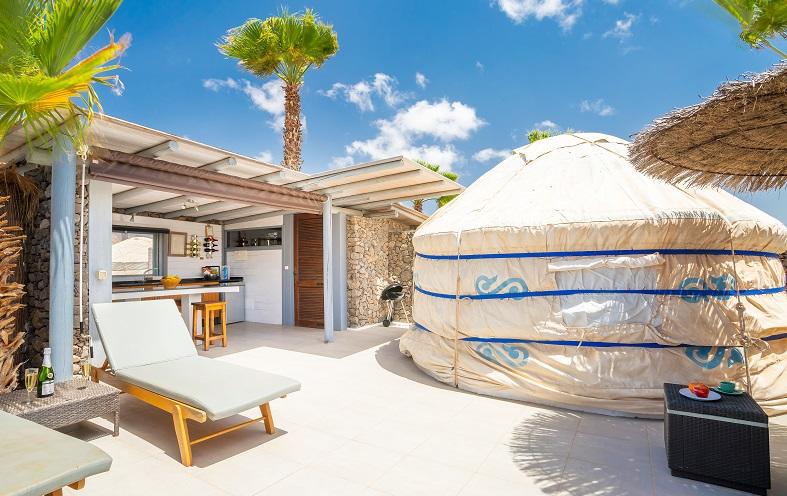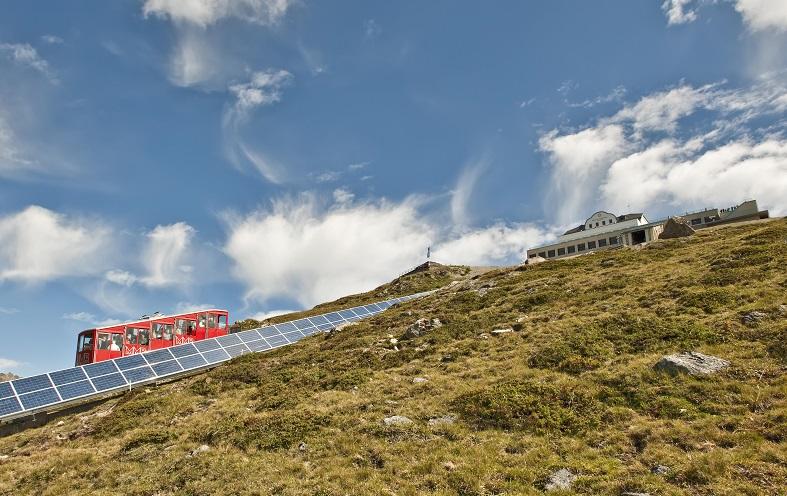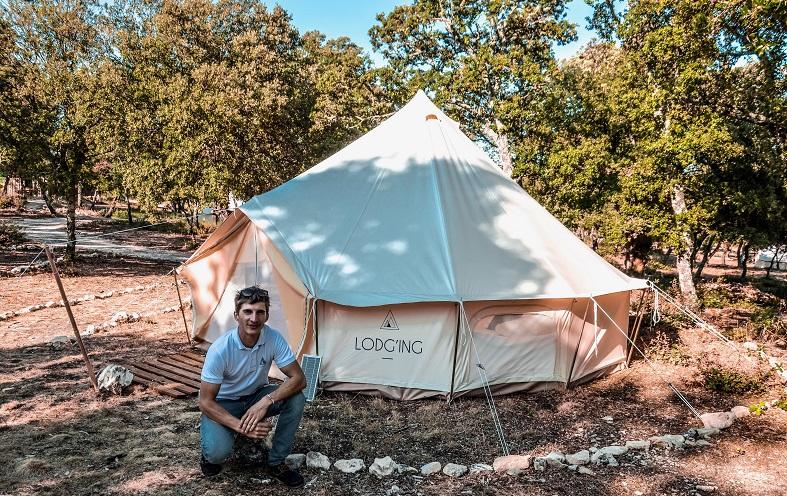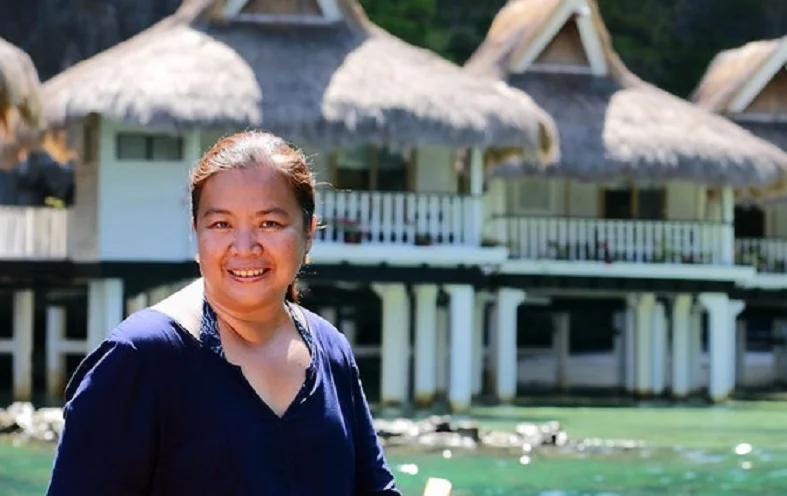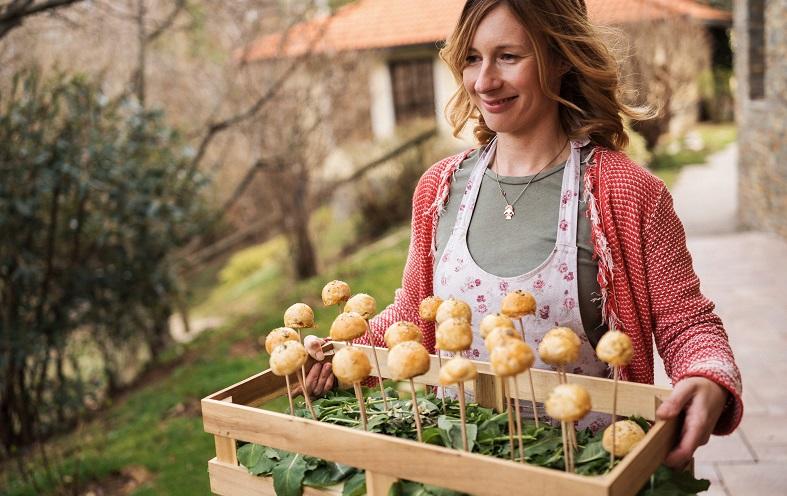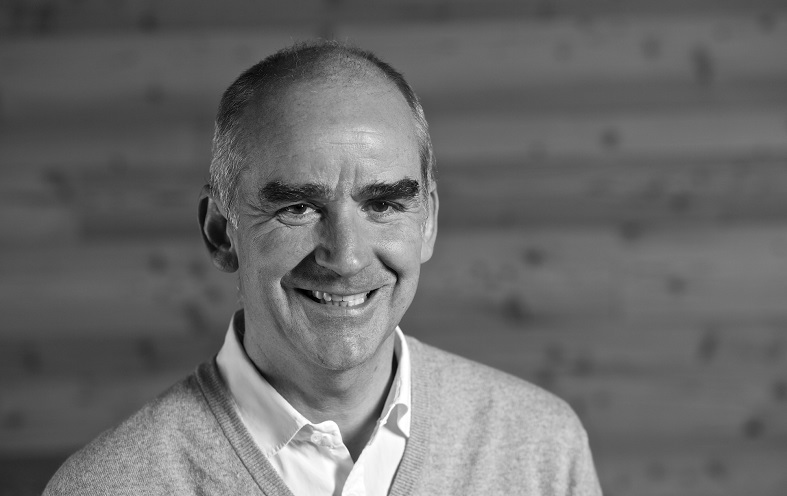
If there’s one thing we learned during our visit to Singapore, then that the booming city-state has many faces and colours, and so does commitment to sustainability. The multi-award winning Siloso Beach Resort is special in many ways. Popular with families, city escapers and nature seekers, SBR offers a hospitality experience at the very forefront of environmental best practice. The resort’s director of sustainability, Sylvain Richer de Forges, in this interview takes us on a tour around the many sustainability features.
Learn about:
- What brought Sylvain Richer de Forges to focus his career on tourism sustainability;
- How the sustainability topic has evolved since he started his career;
- Which sustainability aspects at the resort he finds the most challenging – and which the most noteworthy;
- How the resort has benefited from its focus on best practice in sustainability (financial and reputational);
- Current trends regarding sustainability and hospitality;
- Advice for hotel managers keen to follow suit.
Sylvain, why did you decide to focus your career on sustainability and tourism? Who or what inspired you?
The tourism industry crossed my path by chance. While I have been directly involved with tourism projects over the past years, many aspects of my work are not related to tourism specifically. Nevertheless, I find it to be an interesting field because it is rapidly expanding, and because it is linked to global challenges. The scalability of initiatives that can be applied to a particular tourism project is of interest because there is a real potential to make a significant positive change on a global scale.
I always had an interest in conservation and innovative technology that can be applied to good use, so it was not difficult for me to venture into tourism.
Has your view of sustainability and tourism changed since you started your career?
Not really, but I have noticed significant developments in the field. I still think that tourism has a significant impact on the environment and society, and that too often unsustainable developments are occurring. However, there has been a strong lobby pushing for a sustainability agenda in the field. I think that tourism will continue to grow and mature in the coming years.
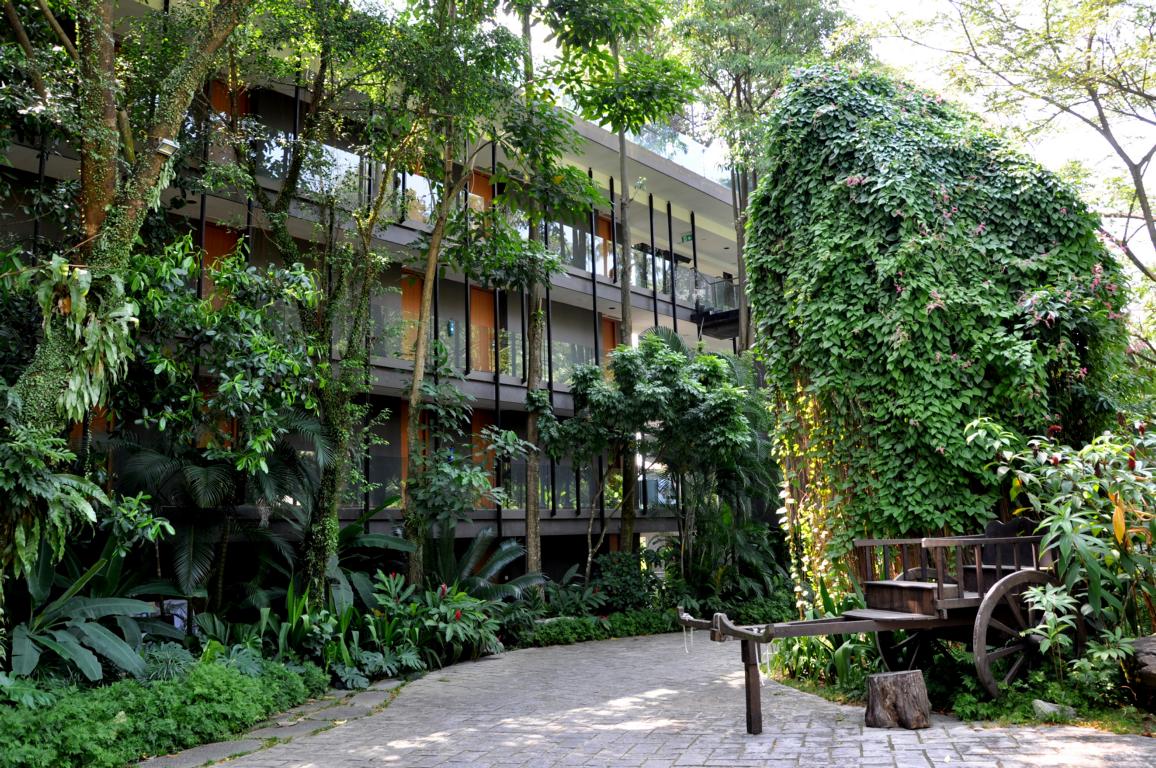
Which sustainability aspects at Siloso Beach Eco Resort have you found the most challenging? And how have you overcome those challenges?
There are a range of possible answers to this question. Let me give you one example:
The resort is well known to have a unique food waste management program. It collects certain types of food waste from its F&B [food and beverage] operations, which are fed to earthworms (the resort has a farm with over one million earthworms). The Earthworms digest the food and produce a residue referred to as casting, which is actually the world’s best fertilizer. The casting is then applied to cultures on the rooftop of the resort to grow leafy vegetables and spices. Those products (which are fully organic) are then used in the restaurant.
This project is of primary importance not just for the resort but also for Singapore as country. It demonstrates that a building can be self-sustained with regards to the production of certain food. There is a lot of interest from the government to scale up this initiative and we have undertaken various trials in partnerships with educational and research institutes.
This project, while seemingly simple, was quite complex to implement and involved a range of step backs and trials. It is one of the projects at the resort which have been classified as research because it has the potential, when fully operational, to greatly benefit the business, despite the fact that it has cost a lot to implement.
Challenges encountered included:
- Finding the right formula to keep the system going (e.g. environmental conditions for earthworms to live);
- Getting the infrastructure right;
- Merging different operations with the projects (e.g. F&B staff, maintenance, site visits…);
- Convincing third parties to invest in similar initiatives;
- Making the project financially sustainable (e.g. by selling the castings).
It is still an ongoing project that has proven very successful to date.
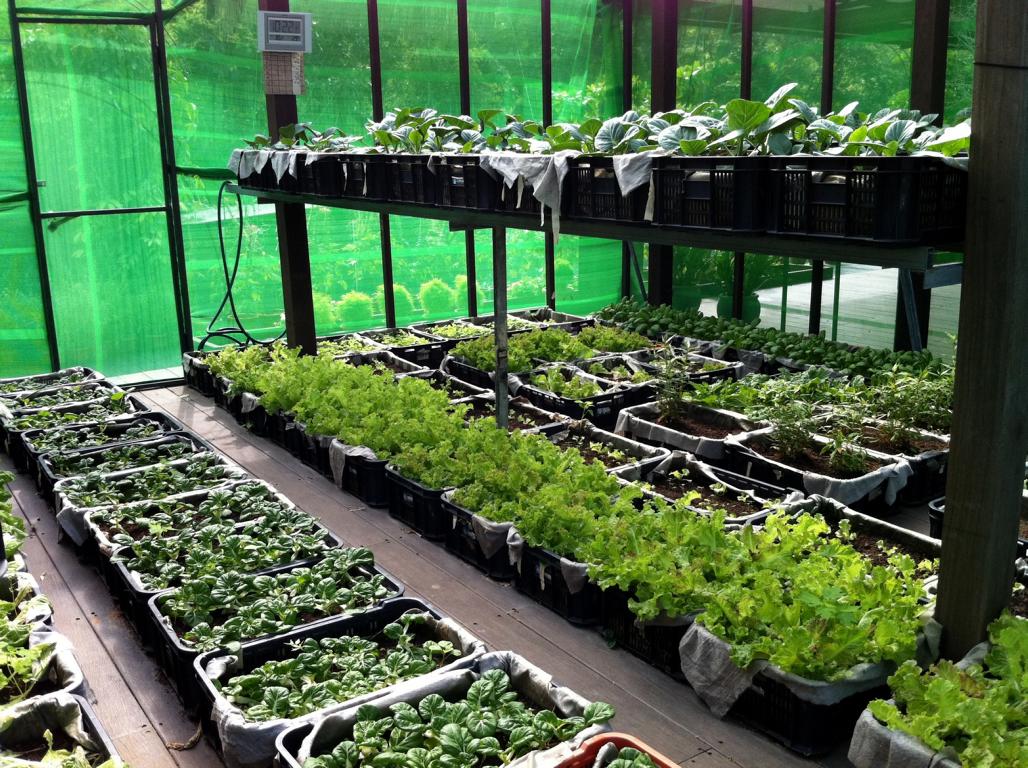
Which sustainability initiatives at the resort do you find the most noteworthy?
We have very interesting and noteworthy initiatives on all aspects of energy, waste and water management. Let me just highlight one particular energy project:
SBR uses a state of the art recovery system on its chiller plant. The chiller is used to cool down water for the air conditioning units. Like with similar projects, in the process of cooling the water, heat is generated. Most companies would simply allow the heat to dissipate to the air, which is a big loss in terms of energy.
At SBR the heat is captured and stored, before being circulated throughout the entire resort. Therefore, when guests take showers at the resort, they are using hot water generated from the cooling process. Over the years the chiller heat recovery systems have been upgraded to the point that even after running the hot water through the entire resort, there is still an excess of heat. The resort then built a spa pool, providing hot water with temperatures of 35+ degrees C.
This pool is unique because it is dissipating the excess heat from the chiller system to heat-up and does not require any further energy input. Perhaps the most innovative part of this integrated system is that, because the hot water pipes from the chiller are run through the swimming pool to heat up the spa, the swimming pool also acts as a cooling device for the chiller. In other words, the resort uses its swimming pool as a replacement for its cooling tower, which is a unique system currently in use in this part of the world.
Since the start of this project, the resort has managed to completely switch off its conventional cooling tower, which saves a lot of energy and water.
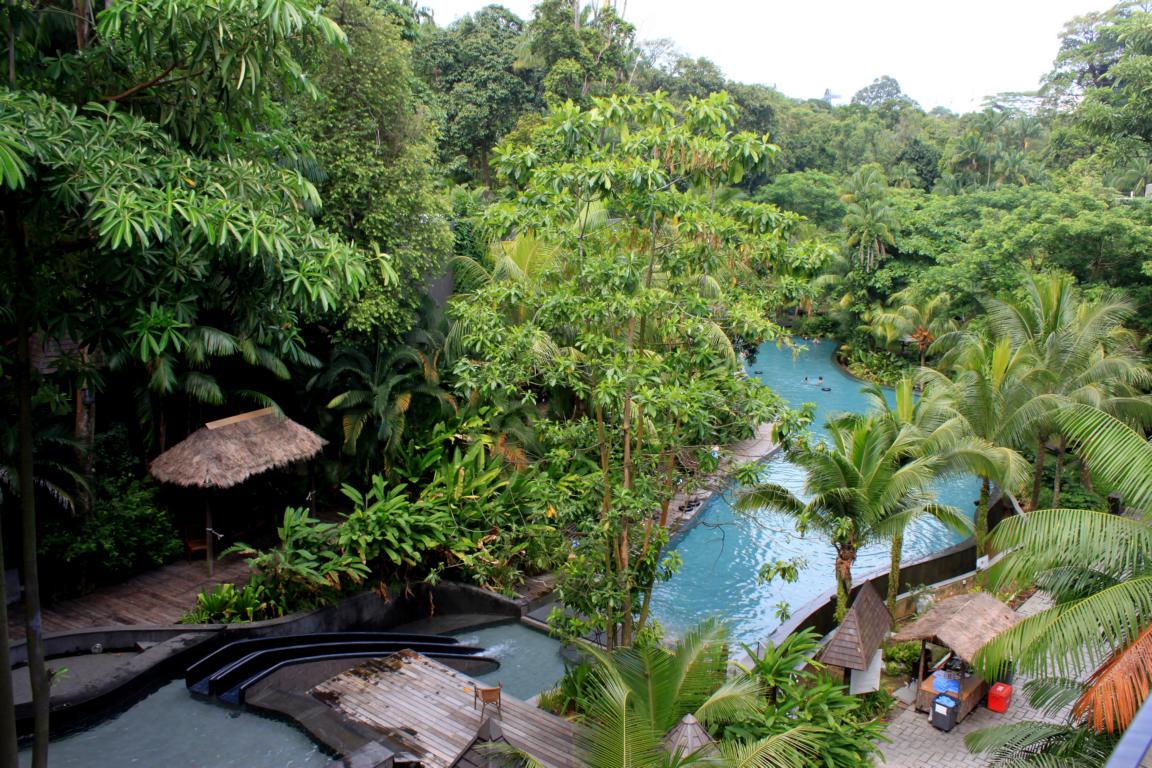
Which have been the benefits of SBR’s strong focus on sustainability?
There has been a range of benefits to the business:
Reputation:
SBR has experienced great success in growing from a little-known entity to one at the forefront of the sustainability agenda locally and increasingly regionally (not just in the hotel/tourism industry). The resort has been recognised for its sustainability practices through a range of third party awards and certifications. Because of its sustainability agenda, SBR benefits from a great reputation among its stakeholders.
Financial:
In the case of SBR it is clear that business has improved as a direct result of the sustainability agenda. People who visit the resort as part of our CSR initiatives often end up staying over. While not a luxury resort, guests are usually receptive of our unique concept, which is still very new in this part of the world. Based on surveys, about 20% of the guests staying at the resort do so because of the sustainability agenda.
Apart from the core income from guest stays, significant savings come from the efficiency initiatives, primarily through energy saving systems, as well as water to a lesser extent. Efficiency comes from a combination of good initial planning, sustainable design (favouring natural cooling and lighting), technology investments and management practices. There is no point in having an efficient building if it is managed inefficiently.
Which trends do you observe with regard to sustainability in hospitality and tourism?
There has been a lot of positive influence in this field over the past few years. Just looking at the sustainability positions which have been created in major hotel chains reflects this change. The below changes can be seen:
- More hotels and chains are adopting at least some kind of sustainability agenda;
- Consumer expectations for sustainability in tourism are growing;
- Aspects of sustainability efforts which used to be taboos are now accepted, such as programs to have guests reuse the same towels, no packaging… they are no longer considered “stingy” and just ways for hotels to save money.
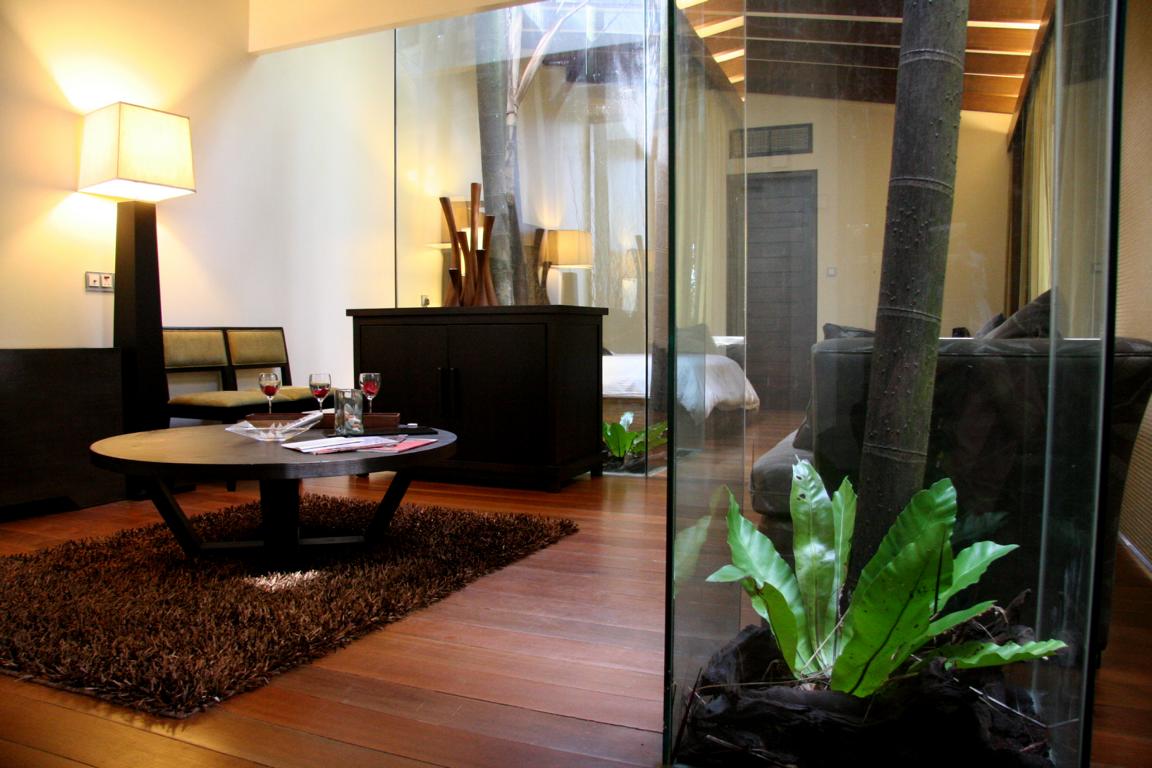
Your 3 bits of advice to hotel/resort managers who’d like to embrace sustainability practices but don’t know how to start?
A sustainability agenda should always be customized. The first things to address are the main impacts the business has on the environment and society. Therefore the first step should be to clearly identify what these impacts are.
Energy is an easy start for hotel sustainability. It is not difficult to reduce consumption through technology or review of management practices. Furthermore, energy savings directly lead to cost savings, which will get the attention of senior management. Once savings are achieved, it makes it easier to convince the management and owners to pursue the sustainability agenda further.
Communication is very important. There is no point to develop great initiatives which remain internal and only known to a few people. The more successful sustainability initiatives are shared, the more the business will be recognised and gain exposure, which will benefit the bottom line.
Your thoughts on tourism sustainability in Singapore? Is there a destination-wide interest in sustainable tourism?
Singapore is not the first destination that usually comes to mind to sustainability-conscious travellers. There are many other destinations in South East Asia which offer great outdoor venues and associated sustainable, alternative stays. However, there are a few hidden gems in Singapore with regards to sustainable tourism which have not been well advertised, and which are often overshadowed by larger commercial tourism projects.
Those include the Siloso Beach Resort, of course, but also a range of city buildings with interesting features, such as vertical greenery, rooftop gardens – for example PARKROYAL on Pickering. Singapore also has great outdoor venues for nature lovers, such as the Bukit Timah Natural reserve or Ubin Island.
There are some good case studies on Singapore and sustainability in a dense city environment. The offshore land field, which can be visited, is a good example.
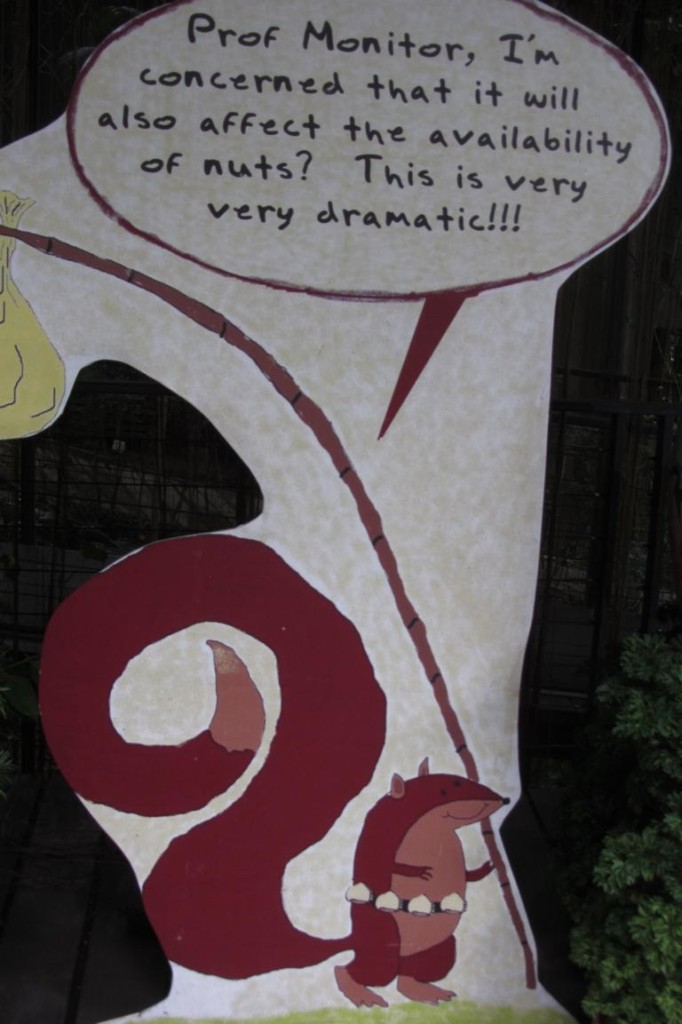
In your view, which are the most important aspects when communicating sustainability in a tourism context?
Well, first of all the concept is still to date very vague and not understood to many. So there is still a lot of room to simply communicate sustainability and the need to adopt sustainable business models in general, no matter the approach.
I think that communicating the special initiatives that a particular project does is important. While interested people may already have heard similar concepts elsewhere (such as reusing towels, switching off lights, organic local food…) they may be even more interested to learn about a unique project undertaken in that particular place, if any.
When planning a communication campaign, the most important question to ask is: what is really unique about our sustainability agenda?
Because hotels are places of transit for a lot of people with different backgrounds and origins, they have a high potential to educate on sustainability and to spread the word to inspire others.
Thank you, Sylvain.
Connect with Sylvain Richer de Forges on LinkedIn or visit the resort’s sustainability portal for more info on its environmental and social initiatives.
Enjoyed our interview with Sylvain Richer de Forges on sustainability practices at Siloso Beach Eco Resort on Sentosa Island in Singapore? Share and spread the word!

